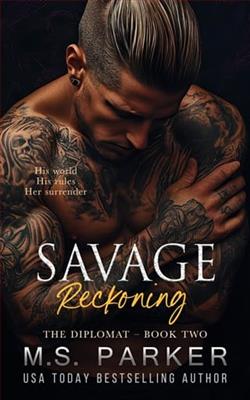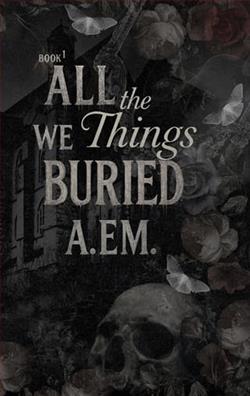Page 14 of A Whole New Trick
“Ms. Caldwell.” My boss’s voice sounds behind me. “Do you have a moment?”
I stiffen and whisper into the phone. “I’ve got to go. Text me the details for this weekend.”
“You got it?—”
I end the call and turn around to face Dr. Carlisle Gaines, the lead sports dietician for the Texas Rangers.
His fatherly expression is calm and patient. “I apologize. I didn’t realize you were on the phone.”
“It’s okay. A friend had a question for me. I can call him back later.”
“If you say so.” He motions to the hallway. “Let’s speak in my office.”
I nod and walk in front of him when he motions me forward. Anticipation ripples through me with each step I take.
My direct manager, Stevie, told me Dr. Gaines and the other dieticians had noticed my expertise and skills. She said they’ve been discussing elevating my position from assistant nutritional coach to lead coach for one of the team’s players.
I hoped for this opportunity since I took the job half a year ago. In that time, I’ve tried to make myself indispensable. I help my colleagues with their dietary plans for the athletes they work for, helping them develop analytics to measure the influence of certain macro proportions based on the individual’s age, ethnicity, blood panel, and more.
I keep my pace measured and my spine straight as I try, but fail, to temper the hope billowing in my chest.
We reach the fancy corner office, and I follow Dr. Gaines’ instruction to take a seat at one of the expensive leather chairs in front of his desk. He walks over to the bookshelf lining the wall behind his desk. He picks up a narrow book with a dark brown cover that’s worn at the edges.
Dr. Gaines holds the book in his hands and meets my gaze. “I’ve heard great things about your work these past few months, Ms. Caldwell.”
Pride swells. “Thank you, Dr. Gaines.”
He smiles. “You have an impressive knowledge of how to personalize dietary regimens using criteria that are nothing short of unique. Tell me, how did you develop your guidelines?”
I lick my lips and shove down the nerves trying to shake my confidence. “Well, I’m not sure if you know this, but I was a college athlete. So were my brothers, as well as my parents.”
“I did not. What sports?”
“I played volleyball. My brothers were in track and field. My mom was a dancer.” I pause, but I see no way not to admit it. “And my dad played hockey.”
“Caldwell.” Understanding sparks in his gaze. “Your father wouldn’t happen to be Warren Caldwell, would he?”
“The one and only.”
“Wow.” He shakes his head in awe—it’s the same way any true hockey fan looks when they hear I’m the daughter oftheWarren Caldwell. “I had no idea.”
Most people don’t.
My dad was a breakout hockey star in his first year at university. He’d stayed in Toronto to finish his degree rather than enter the NHL draft, and he took his team to the University Cup title three times, winning two during his junior and senior years.
By all accounts, Dad had a brilliant professional career ahead of him. That is, until he suffered a nasty collision with anopposing team’s defenseman, tearing his ACL to such a degree that he needed surgery to repair it. He never played the same again, and he made the difficult decision to retire.
“How does your father feel to know you work for the Ranchers? Does he ever come to games?”
Never.
“Not this year.” I force a smile that I’m sure looks awkward.
Since Dad and Mom moved to Dallas early in their marriage, they’ve established a life here that’s free of his notoriety as a would-be hockey legend. Aside from following his favorite team—the Toronto Jays—he doesn’t talk about hockey at all. He certainly doesn’t come to Ranchers games.
“Well, if he does, be sure to let me know. I know at least five old geezers in the organization who would love to meet the Slapstick Kid.” He chuckles at whatever memory my father’s old nickname elicits.
“I will,” I nod. “Absolutely.”















